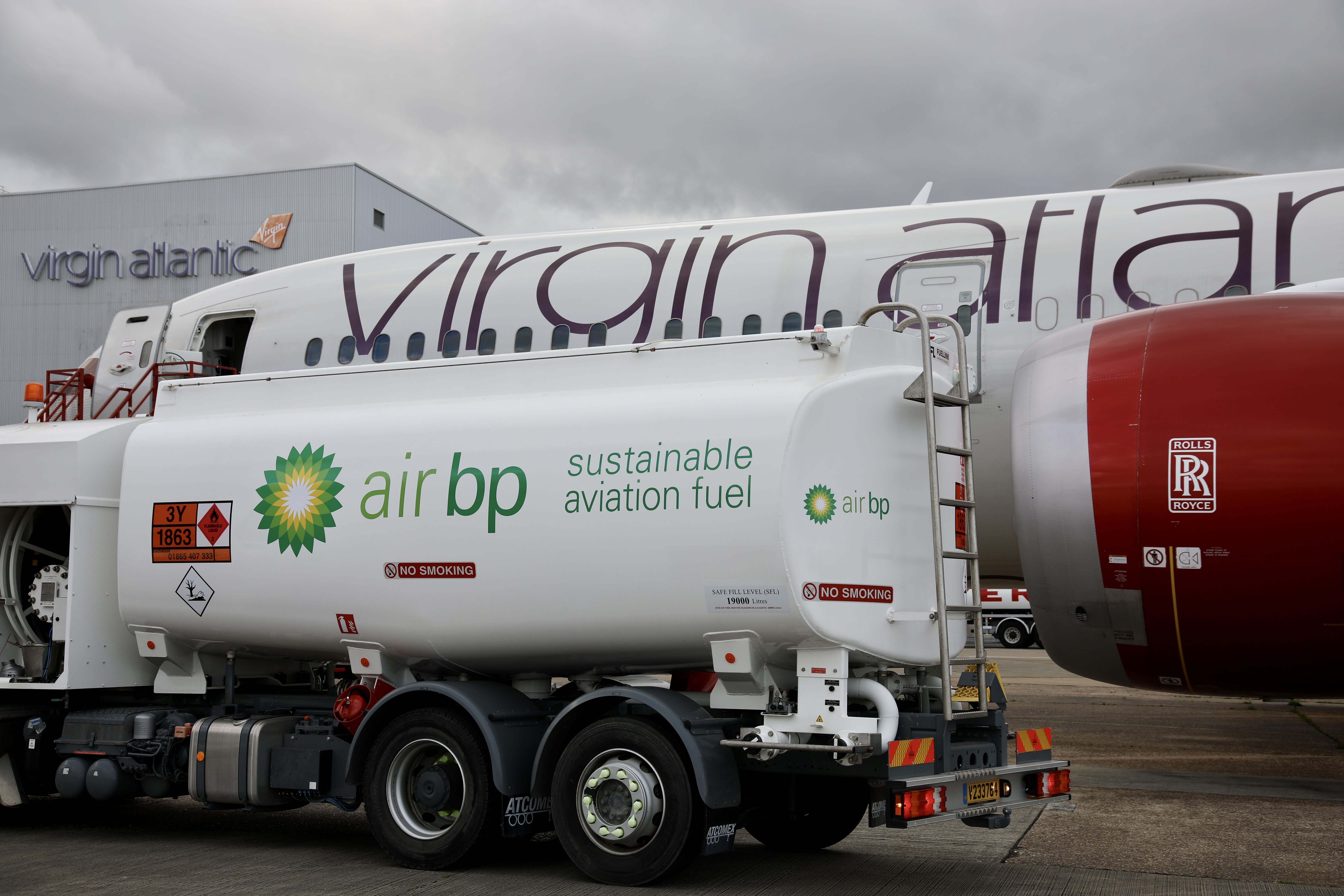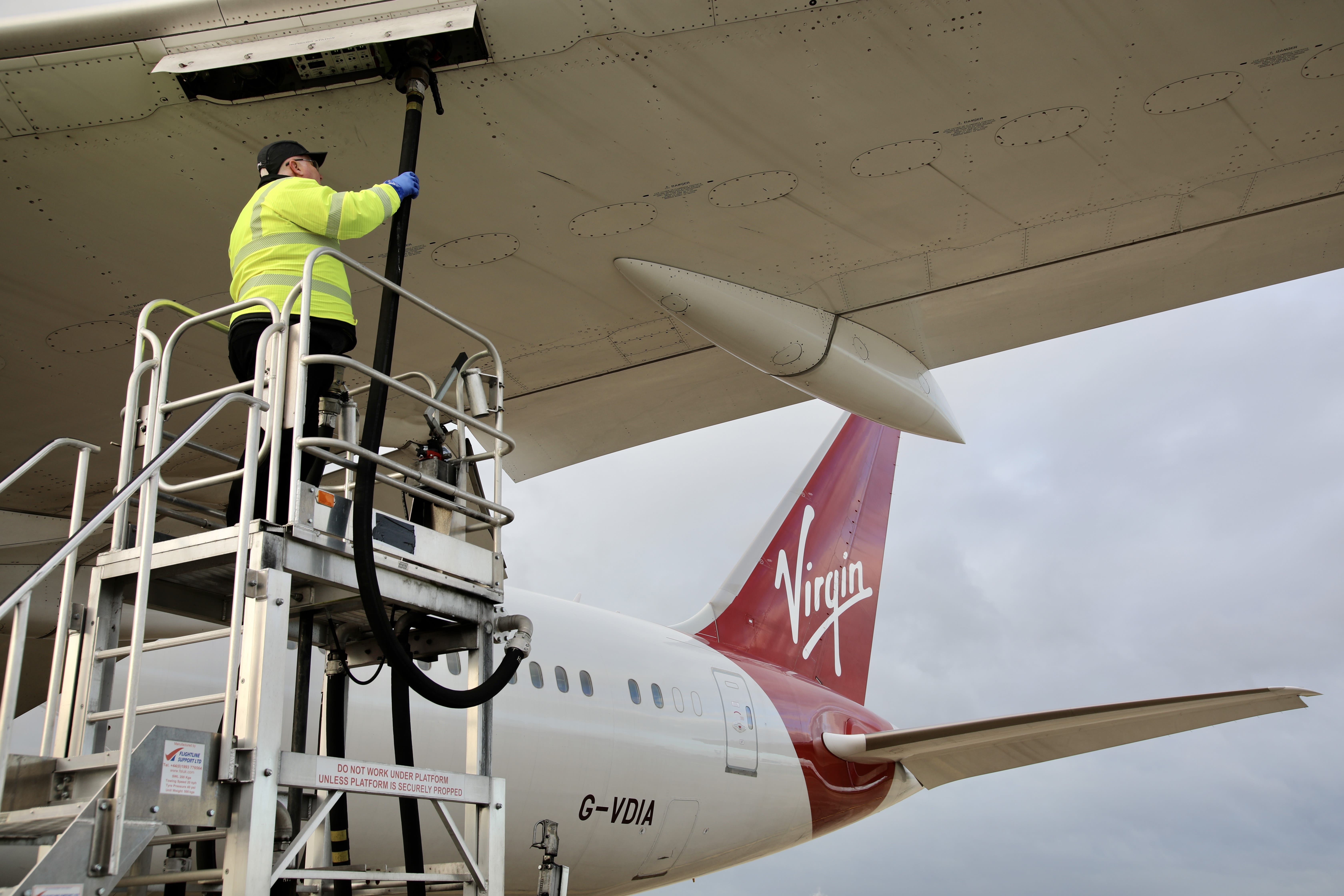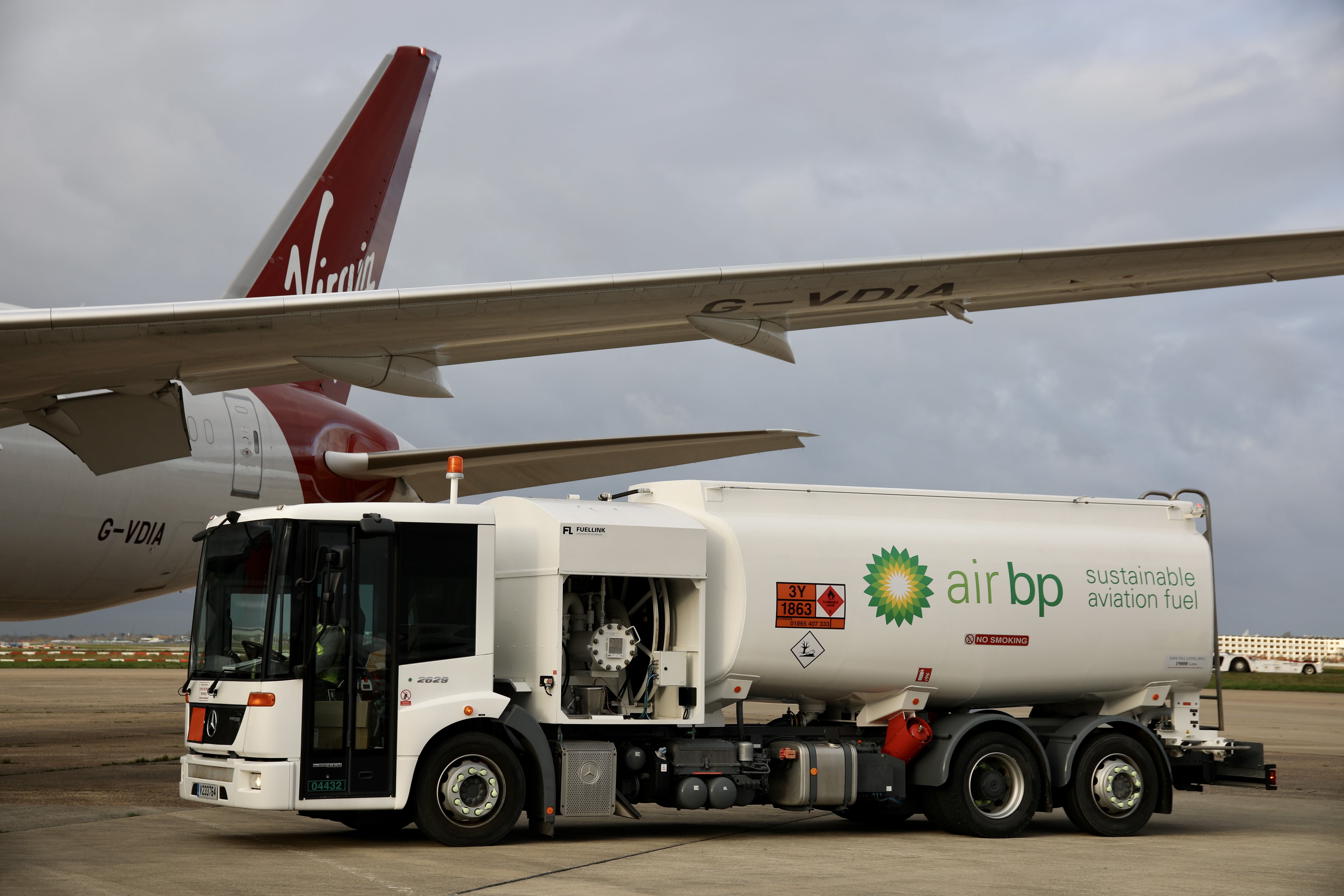Flight100: Virgin Atlantic and RMI test new ways to reduce aviation’s climate impact
Virgin Atlantic’s flight using 100% Sustainable Aviation Fuel (SAF) successfully landed in New York, marking the culmination of a year of radical collaboration, and showcasing the capability of SAF as a safe drop-in replacement for fossil-derived jet fuel, compatible with today’s engines, airframes, and fuel infrastructure.
SAF has a significant role to play in the decarbonisation of long-haul aviation, and pathway to Net Zero 2050. The fuel, made from waste products, delivers CO2 lifecycle emissions savings of up to 70%, whilst performing like the traditional jet fuel it replaces.
However, demonstrating the viability of SAF wasn’t the only goal of the flight. In addition, RMI and its partners were also able to run the first real-world trial of its work, as part of the Contrail Impact Task Force (CITF), which focuses on eliminating another planet-warming byproduct of jet-flight: contrails.
Virgin Unite has partnered with RMI to deliver this work as part of its ongoing commitment to sustainable transportation.
Contrails are the long white plumes that form behind aircraft in the sky, and they substantially contribute to global warming. One study that looked at aviation’s contribution to climate change (between 2000 and 2018) concluded that contrails conservatively create 57% of the sector’s warming impact, more than the CO2 emissions from burning fuel.
According to RMI, burning jet fuel directly contributes around 2.4% of global CO2 emissions annually, but when we add in the impact of contrails, aviation’s overall contribution to global warming rises closer to 3.5% per year. Preventing or reducing the impact of contrails would represent a huge step in the right direction for the aviation sector.
The amount of contrails formed by an aircraft varies considerably depending on altitude, speed and time of day. However, currently the science of predicting and preventing contrails remains in its infancy. It’s not yet precisely understood how much they vary, so more data is needed to be able to create accurate models.
This fundamental gap is why Virgin Unite is supporting RMI to establish the CITF – bringing together more than 50 aviation-focused organisations, who together are actively developing a roadmap to help scale up techniques to mitigate contrails.
These real-world tests will advance the science around contrails and help develop in-flight procedures that may significantly reduce aviation’s climate impact. They will also help us determine the effectiveness of sustainable aviation fuel in mitigating warming from persistent contrails.
One member of the RMI team present on the flight was Joey Cathcart, Senior Associate on RMI’s Climate-Aligned Industries team, who spoke about the importance of the contrails work. He said: “Even as scientific understanding of contrails advances, this research will help advise airlines on how to avoid triggering damaging contrails in the first place. It’s definitely a pioneering process that is likely to be easily replicable. Working on climate change is always a bet on the future. Usually that means betting decades ahead, but in this case, the potential speed at which airline practice could shift is very exciting.”
Virgin Atlantic’s history-making flight hopes to advance solutions to both the challenges of making Sustainable Aviation Fuel viable and to better understanding how to mitigate the impact of contrails.
Visit RMI to learn more about its work with the Contrail Impact Task Force.



